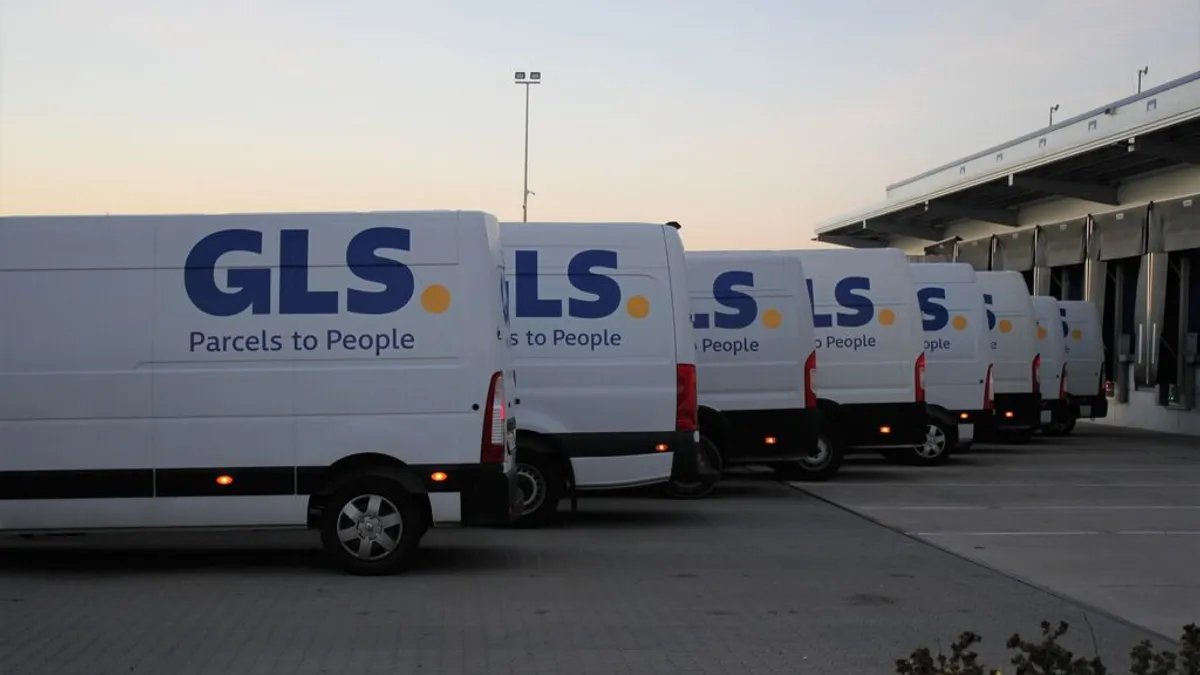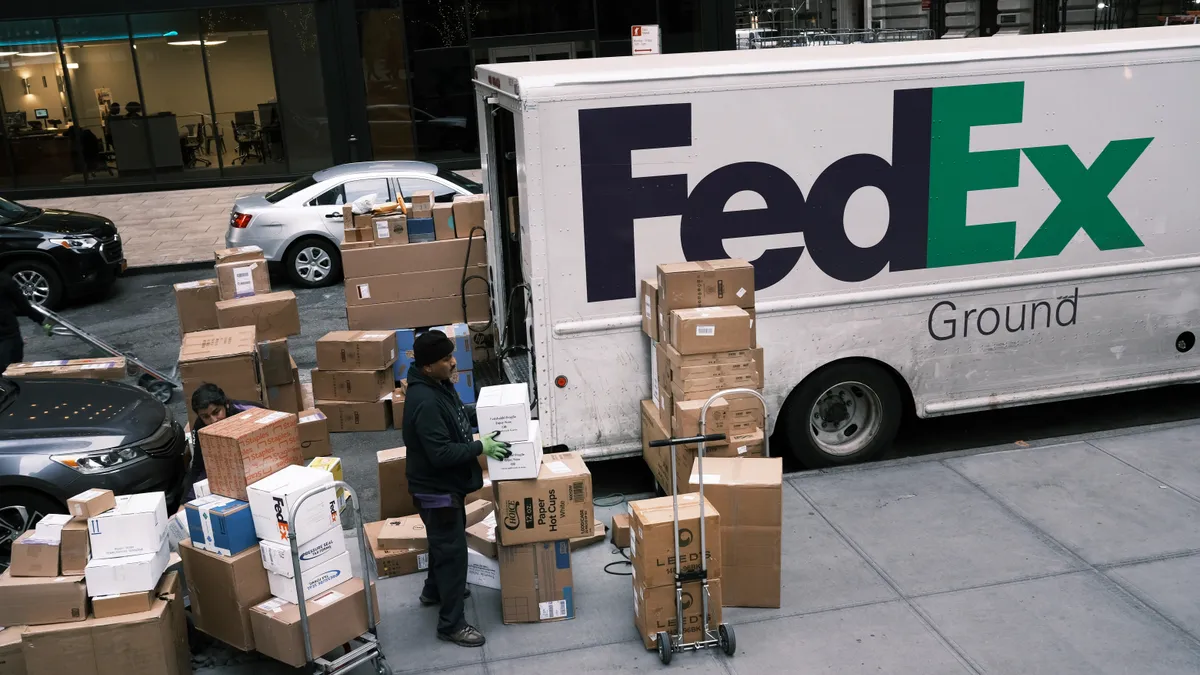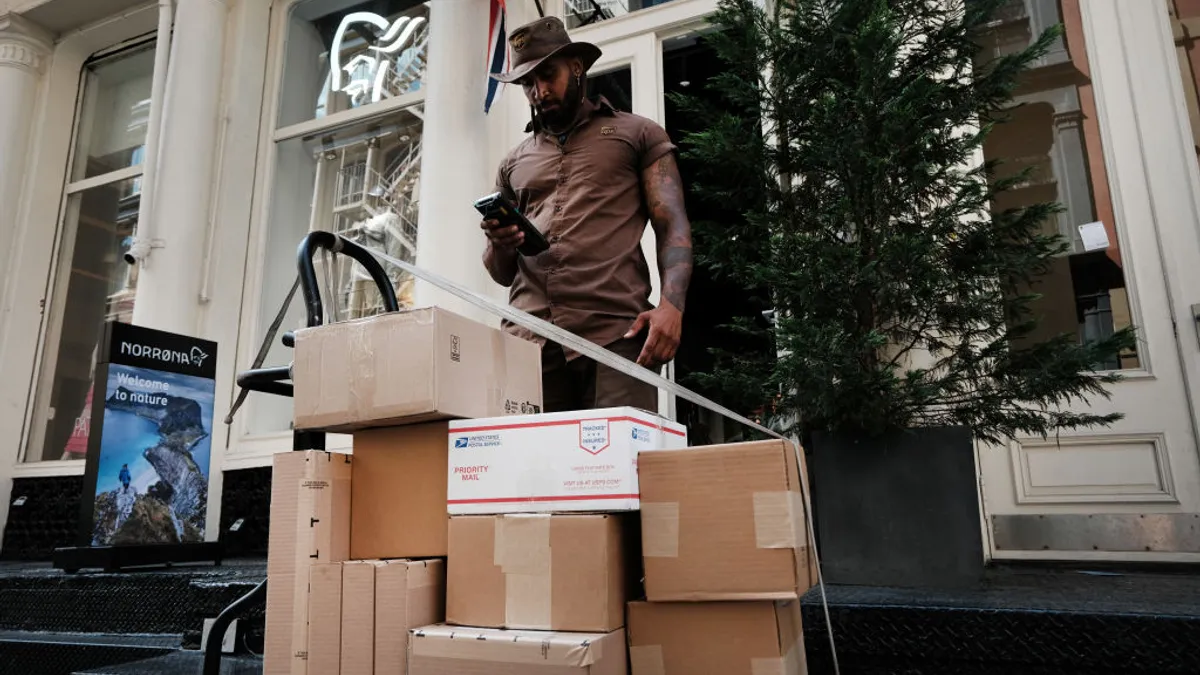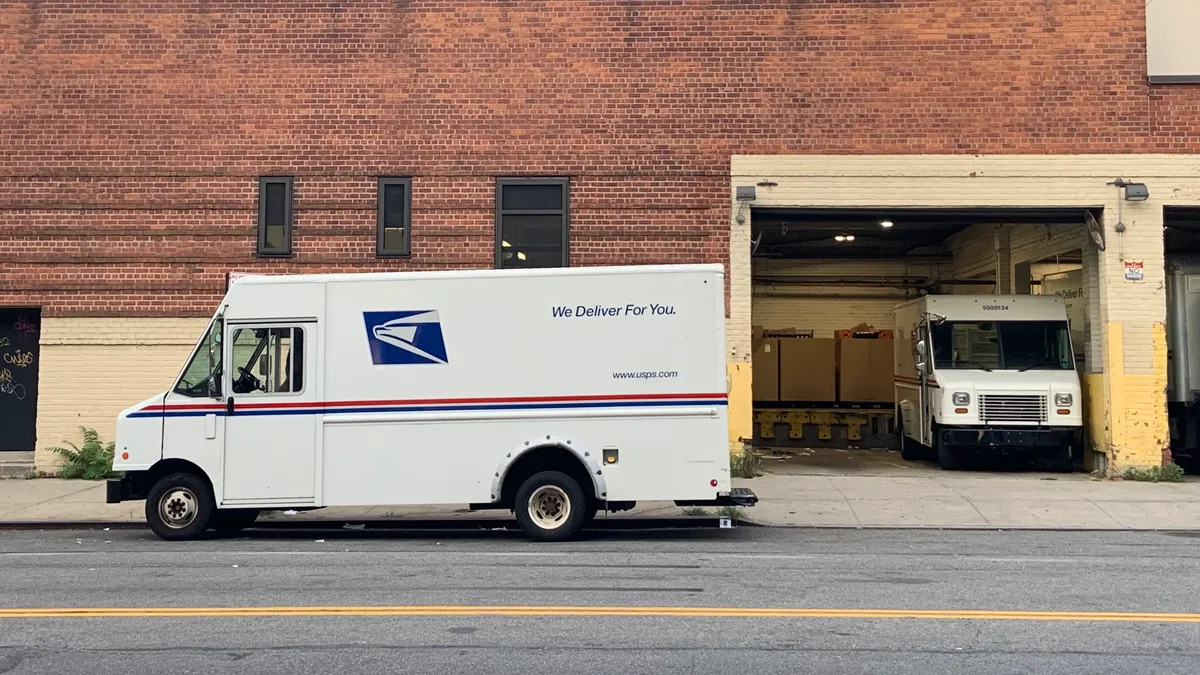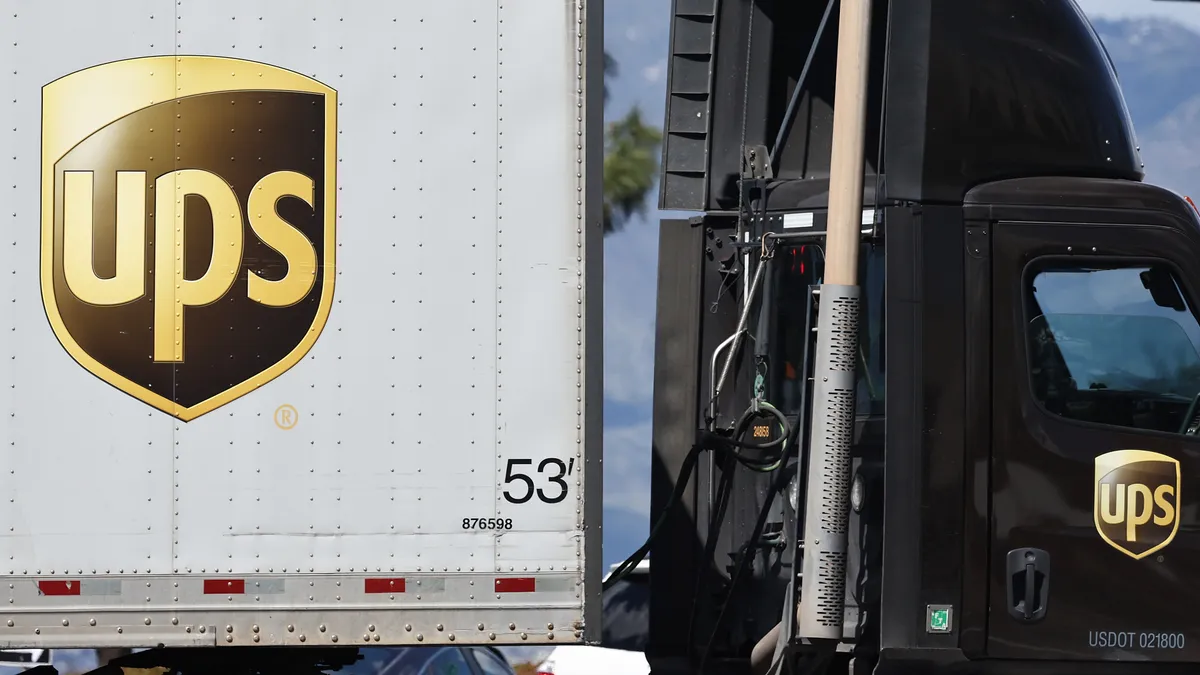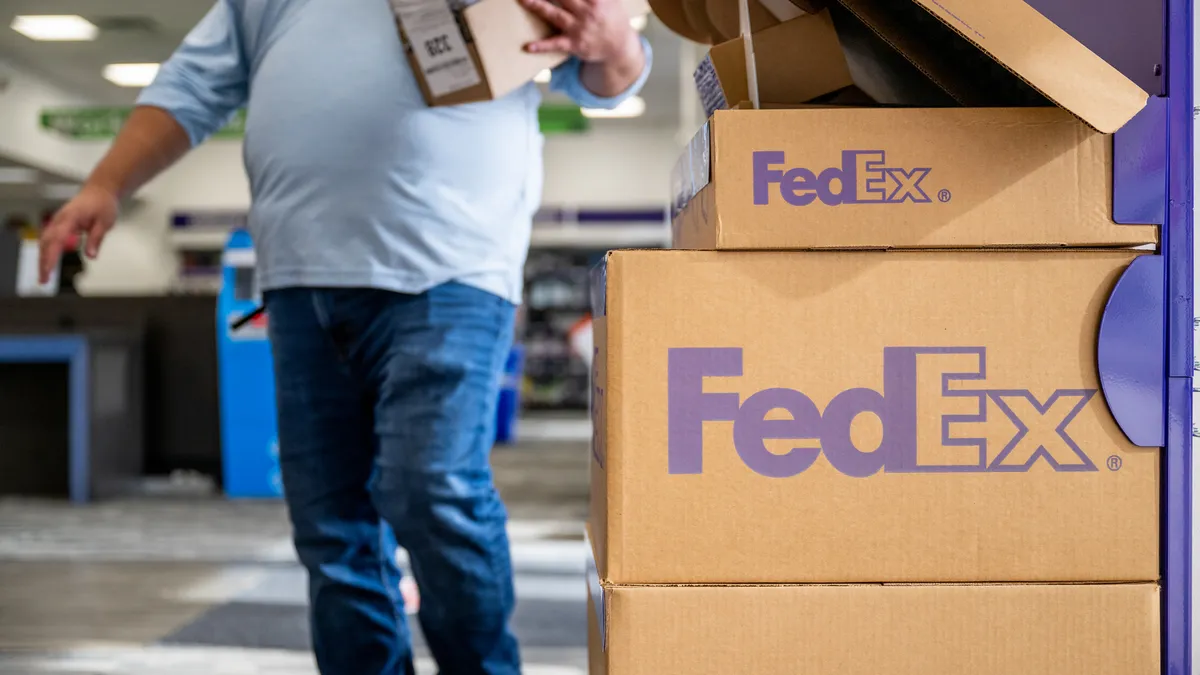Peak season surcharges are back in 2024 with numerous changes compared to last year.
FedEx, UPS, OnTrac and GLS US are among the delivery providers stretching their temporary surcharges over a longer period this year, despite a condensed holiday period. Some carriers have added new fees, changed their fee structure or reintroduced the practice after skipping surcharges last year.
Here's a roundup of companies that are instituting holiday surcharges, along with a few alternatives that are opting out of the practice.
FedEx
FedEx is levying new per-package delivery surcharges during the 2024 peak season, including a $1-to-$2 fee for various express services and a $0.30-to-$0.55 fee for ground residential shipments.
The company will also apply a fee for large-scale shippers that see volumes spike during the peak season. That charge ranges from $1.45 to $8.25 per package, depending on the service used and how much more a shipper's volume increased versus their typical shipping activity.
The surcharges will be active from Oct. 28 to Jan. 19, 2025.
FedEx also implemented higher fees for packages that are oversized, unauthorized or require additional handling from Sept. 30 to Jan. 19, 2025.
UPS
UPS will institute surcharges for ground residential, air and SurePost packages ranging from $0.25 to $2 per package.
Like FedEx, UPS will also have a fee in place for high-volume customers that need more packages delivered during the holidays. The charge, which ranges from $1.50 to $8.25 per package, varies based on service used and how much a customer's volume increased.
Both fee categories run from Oct. 27 to Jan. 18, 2025.
UPS already has holiday surcharges in place for oversized or hard-to-handle packages, which started Sept. 29 and will end on Jan. 18, 2025.
U.S. Postal Service
The Postal Service opted for no seasonal rate hikes last year, but the practice is returning from Oct. 6 to Jan. 19, 2025. Prices are slated to increase by an average of 6.4% for Ground Advantage, 5.5% for Priority Mail and 4.9% for Priority Mail Express.
“This seasonal adjustment will bring prices for the Postal Service’s commercial and retail customers in line with competitive practices,” the agency said in a news release.
The rate increases will not impact Parcel Select, the agency service used by DHL eCommerce, UPS Mail Innovations and other workshare partners for last-mile delivery.
OnTrac
OnTrac will levy a temporary surcharge of $0.75 to all residential packages shipped on Oct. 26 through Jan. 18, 2025 to cover increased operating costs, according to its website. Existing contracted discounts on residential delivery fees won't affect this surcharge.
The flat surcharge marks a departure from OnTrac's 2023 approach, when it levied a fee that ranged from $1.35 to $6.40 depending on how much volume deviated from a shipper's baseline volume.
OnTrac will also levy a supplemental $7.75 surcharge this year for packages that require additional handling and a $84.50 surcharge for oversized packages from Sept. 29 to Jan. 18. 2025.
GLS US
The carrier is implementing a $1.50 peak season surcharge for every residential parcel shipped between Oct. 28 and Jan. 19, 2025. The fee, the same amount as in 2023, will be applied as an additional cost on all home deliveries.
"This surcharge helps us maintain the quality and reliability you expect, even when resources are stretched," GLS US said on its website.
DHL eCommerce
After not applying any seasonal fees during the 2023 holidays, DHL eCommerce is reinstating peak surcharges from Oct. 27 to Jan. 18, 2025.
DHL eCommerce relies on the Postal Service for final-mile delivery. Per-package delivery fees can climb up to $1.25 for the company's domestic SmartMail products, depending on parcel weight and distance traveled. Surcharges will also apply for Ground Advantage and Priority Mail shipments.
Delivery providers with no peak surcharges
Although major carriers are implementing peak season surcharges, several smaller delivery providers are opting out of the practice, including Veho.
"Peak surcharges fall disproportionately on small-medium sized #retail and #ecommerce brands with less negotiating power than industry giants," Veho CEO Itamar Zur said on LinkedIn. "These surcharges destroy their holiday season margins."
Jitsu and Pandion are also skipping seasonal fees.
"Pandion has the capacity to flex with your peak demand and does not charge demand surcharges," according to the company's website.



